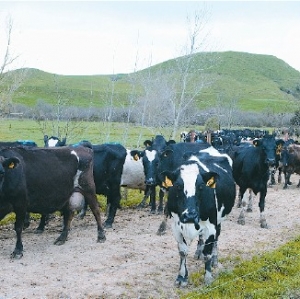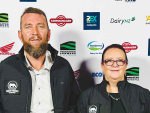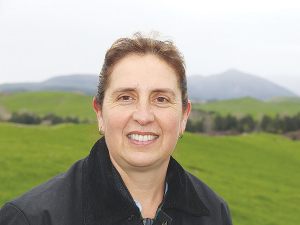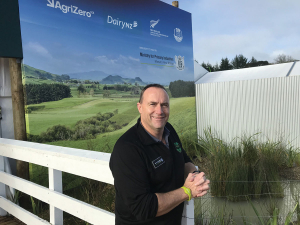CHOOSING A WINNER in the 2014 New Zealand Sharemilker/Equity Farmer of the Year competition is a tough task for the judges, due to the varying backgrounds and positions of the finalists.
"It is a really interesting competition this year. A number of the finalists are relatively new to the dairy industry, having changed careers, and they also hold a variety of positions which highlights the many ways people can now progress in the industry," national convenor Chris Keeping says.
"The greatest factor they have in common – apart from being ambitious dairy farmers – is the majority of this year's finalists have Bachelor degrees. This demonstrates the industry is attracting talented people who are applying skills learned on the job or in other vocations to excel."
Keeping says the sharemilker/equity farmer winner will be announced at a black tie awards dinner attended by 650 people in Auckland on May 9, as part of the 2014 New Zealand Dairy Industry Awards programme. Winners will also be named in the New Zealand Farm Manager of the Year and New Zealand Dairy Trainee of the Year competitions and the winners will share more than $170,000 in prizes.
The New Zealand Dairy Industry Awards are supported by national sponsors Westpac, DairyNZ, Ecolab, Federated Farmers, Fonterra, Honda Motorcycles NZ, LIC, Meridian Energy, Ravensdown, RD1 and Triplejump, along with industry partner Primary ITO.
The 11 finalists in the sharemilker/equity farmer contest include a former professional rugby player (who obtained one All Black cap), two teachers, two veterinarians, a chef and a research technician.
One of the finalists, Canterbury/North Otago's Kevin and Sara O'Neill, are just finishing their second season in the dairy industry while Auckland/Hauraki finalists Bryce and Rosemarie Costar have more than 30 years' experience between them. Mr Costar (aged 49 years) is also the contest's oldest finalist, while the youngest three finalists are aged 27 years.
Five of the finalists hold traditional 50% sharemilking positions, one has a 55% sharemilking position and three hold variable order sharemilking positions. The last two finalists are in equity positions, as equity farm managers or equity sharemilkers.
The herd sizes range from 300 cows up to 1190 cows, with eight of the herds 500 cows in size or less.
It is the first time three of the finalists have entered the dairy industry awards. Seven are second time entrants and it is the third time one finalist has entered the competition.
"When you add in the farm locations, with varying topography and climatic conditions to contend with, it does make it extremely interesting for the judges to determine who is doing the best with the resources available to them," Keeping says.
2014 New Zealand Sharemilker/Equity Farmer of the Year finalists:
• Northland – Lance & Stephanie Oliver
• Auckland/Hauraki – Bryce & Rosemarie Costar
• Waikato – James & Melissa Barbour
• Bay of Plenty – Brett & Natasha Grindrod
• Central Plateau – Donald & Kirsten Watson
• Taranaki – Charlie & Johanna McCaig
• Manawatu – Duncan & Kim Fraser
• Hawkes Bay/Wairarapa – Tony & Zoe Kuriger
• West Coast/Top of the South – Chris & Carla Staples
• Canterbury/North Otago – Kevin & Sara O'Neill
• Southland/Otago – Steve Henderson & Tracy Heale
More information on the finalists can be found at www.dairyindustryawards.co.nz.


















